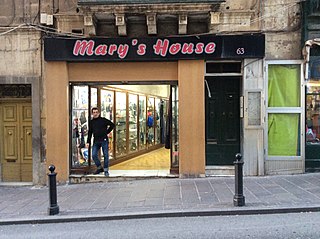A sheriff is a government official, with varying duties, existing in some countries with historical ties to England, where the office originated. There is an analogous although independently developed office in Iceland that is commonly translated to English as sheriff, and this is discussed below.

A sheriff court is the principal local civil and criminal court in Scotland, with exclusive jurisdiction over all civil cases with a monetary value up to £100,000, and with the jurisdiction to hear any criminal case except treason, murder, and rape which are in the exclusive jurisdiction of the High Court of Justiciary. Though the sheriff courts have concurrent jurisdiction with the High Court over armed robbery, drug trafficking, and sexual offences involving children, the vast majority of these cases are heard by the High Court. Each court serves a sheriff court district within one of the six sheriffdoms of Scotland. Each sheriff court is presided over by a sheriff, who is a legally qualified judge, and part of the judiciary of Scotland.

The Crown Office and Procurator Fiscal Service is the independent public prosecution service for Scotland, and is a Ministerial Department of the Scottish Government. The department is headed by Her Majesty's Lord Advocate, who under the Scottish legal system is responsible for prosecution, along with the area procurators fiscal. In Scotland, virtually all prosecution of criminal offences is undertaken by the Crown. Private prosecutions are extremely rare.
The murder of Jodi Jones, a 14-year-old girl, took place in Easthouses, Scotland on 30 June 2003. Her 15-year-old boyfriend, Luke Mitchell, came under suspicion, but it was several months before he was arrested. Mitchell was tried for the murder and after Scotland's longest single-accused trial, Mitchell was convicted in January 2005. He was sentenced to detention without limit of time with a minimum of 20 years even though there was no DNA evidence.

The courts of Scotland are responsible for administration of justice in Scotland, under statutory, common law and equitable provisions within Scots law. The courts are presided over by the judiciary of Scotland, who are the various judicial office holders responsible for issuing judgments, ensuring fair trials, and deciding on sentencing. The Court of Session is the supreme civil court of Scotland, subject to appeals to the Supreme Court of the United Kingdom, and the High Court of Justiciary is the supreme criminal court, which is only subject to the authority of the Supreme Court of the United Kingdom on devolution issues and human rights compatibility issues.
Ranald Norman Munro MacLean, Lord MacLean is a retired Scottish judge.
William Taylor, QC has been a Scottish advocate since 1971 and a QC since 1986. Mr Taylor has also been a barrister in England and Wales since 1990 and a QC there since 1998. He has specialised in criminal defence work since the 1980s.

Professor Robert Black QC, FRSA, FRSE, FFCS, ILTM is Professor Emeritus of Scots Law at the University of Edinburgh. He has been an Advocate in Scotland since 1972, was in practice at the Bar and became a QC in 1987.
Graham John Thomson Forbes, CBE is a priest of the Scottish Episcopal Church. He was Provost of St Mary's Cathedral, Edinburgh from 1990 until June 2017.
Sir Gerald Gordon CBE, QC HonFRSE is the editor of Scottish Criminal Case Reports and of Renton and Brown's Criminal Procedure, and author of The Criminal Law of Scotland.
David Belfall was Chairperson of Glasgow Council for the Voluntary Sector and was a Non-Executive Member of the NHS Lothian Board for a four-year term beginning in 2004.
James Mackay QPM retired as Deputy Chief Constable of Tayside Police in 2001. He has had considerable experience of criminal investigation and major inquiries. He is especially interested in forensic science and has served on national committees particularly in the field of DNA in police investigation.
Ruth Anderson, QC has extensive experience of the criminal justice system. She was admitted as a solicitor in 1972, and as an advocate in 1991, taking silk in 1999. Her practice at the Bar has been principally a criminal one, defending in the High Court of Justiciary. She also served as an Advocate Depute from 1998 until January 2001. Miss Anderson has had local government experience and has also worked in private practice as a solicitor. She was appointed a part-time Sheriff in May 2003 and a full-time sheriff in September 2006.
Graham Clark Bell OBE QC is a Scottish advocate.
The Court of Criminal Appeal is the name of an existing court of Scottish law and of historic courts in England and Wales, the Republic of Ireland and Northern Ireland.

Tony Gauci was the proprietor of Mary's House, a clothes shop in Tower Road, Sliema, Malta, who was a pseudo-witness in the Lockerbie Bombing investigation.
The Sheriff of the Lothians and Peebles was historically the office responsible for enforcing law and order and bringing criminals to justice in The Lothians and Peebles, Scotland. Prior to 1748 most sheriffdoms were held on a hereditary basis. From that date, following the Jacobite uprising of 1745, the hereditary sheriffs were replaced by salaried sheriff-deputes, qualified advocates who were members of the Scottish Bar.




